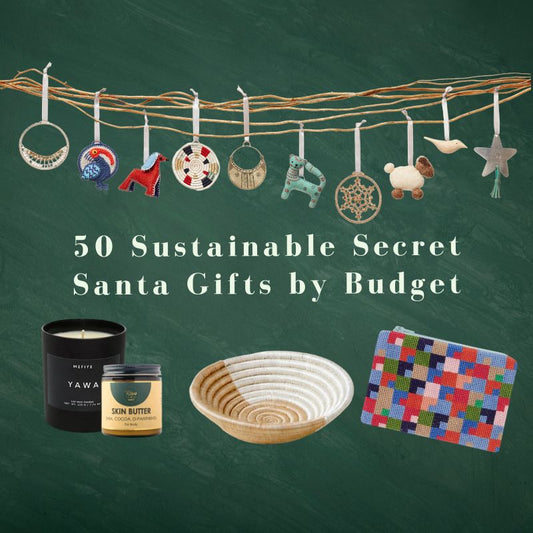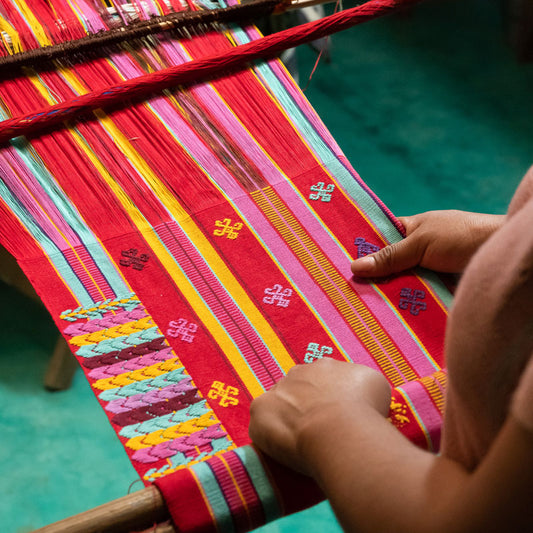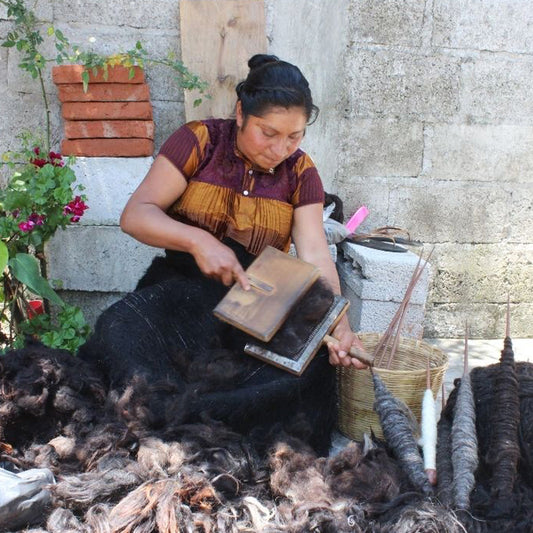
So many of us wonder, how can we live sustainably in a big city? In our January edition of Meaningful Spaces, we interviewed Aude Vuilli, a food scientist and vertical farming engineer, originally from Switzerland and living in London. Aude is completing a PhD and in her spare time cooks using locally sourced produce. We are deeply inspired by Aude’s approach to city living and wanted to share some of her insights for all urban dwellers!
We collaborated with Aude to create three delicious recipes for you. Each uses seasonal veg sourced in local markets in London and are packed with nutritious goodness. As those winter nights draw in, relax by cooking - recipes here.
Aude, please tell us a little about yourself and where you are from.
I grew up in Switzerland, spending most of my time outdoors, hiking in the mountains in the summer and sliding down the snowy Alps in the winter. I never thought I would end up in London. When I first moved here three years ago, I didn’t know what to expect. It has been rich in experience, and I have embraced the vibrancy, culture and innovation that London has to offer.
My passion is shared between cooking and the outdoors. My Instagram @spicydiscoveries is a way for me to engage with other cultures, learn about different cooking traditions, and share with others simple and healthy recipes. Regarding the outdoors, I joined the London National Park City as a ranger where we organise various activities that help London become greener, healthier and wilder. It’s been fun meeting lots of different people, from fungus specialists to fashion designers.
I am currently pursuing a PhD in Connected Environment at The Bartlett, UCL London. My research looks at how we can integrate Internet of Things (IoT) devices into urban green spaces to allow for better management of urban gardens and assist urban ecologists in monitoring the biodiversity of these spaces. I feel very lucky to be able to pursue my research in this amazing faculty, which embraces disruptive and critical thinking and asks us to think outside the box.
Where does your love of cooking and picking out local, seasonal produce come from?
My love for picking out local and seasonal produce comes from my grandfather. He was a keen gardener and taught me how to cultivate fruits and vegetables, from sowing mangetout to tucking straw under growing strawberries. Early summer, I would argue with my brother and sister to eat the first ripe strawberry. In winter, we would keep on rinsing the chew salad and enjoy eating what seemed to be never-ending pumpkin soups.
My mum was the chef, and she taught me what I would describe as a Swiss-French-Italian cooking style. During summertime, we often travelled to the South of France or North Italy and went to the farmers’ markets to buy fresh local produce. It was there I discovered the real taste of aubergines, peppers, melons and peaches.
Going to university and having friends from different cultural backgrounds made me expand my knowledge of different cultural culinary traditions. We cooked Vietnamese, Indian, Middle Eastern, Turkish, Russian and Spanish cooking.
My passion for cooking and seasonal produce has only grown further living in London. I’m still astonished by the wonderful British vegetables: fresh beetroots, celeriac, sprouts, rainbow chards and comice pears, and thankful to Anna Jones and Yotam Ottolenghi for making me explore novel flavour combinations.
"The action of cooking and sharing food is about being able to offer and receive. It is an inspirational act as it asks us to let prejudices and barriers aside and allows us to connect with others through spice, flavour and texture."

Your passion for environmental sustainability is clearly at the heart of how you live and at the intersection of your work. Can you tell us more about your scientific approach to enhancing human wellbeing in urban areas?
When I asked one of my professors of Food Science how I could engage in fixing this health crisis, she said “Aude, if you are looking to fix human health, you better find solutions to fix our environment”.
This sentence has stayed with me, and I really grasped its meaning after moving to London. We have the chance to have numerous parks and gardens that allow us to regenerate and encounter nature, but housing developers, transport planners and business districts are all competing for a piece of land. This brings a lot of tension on the remaining green spaces.
City governments have been shy in pushing ambitious climate actions. There remains a lot of work to do but I am optimistic about it. Everyone has a role to play in transforming our cities for better health, better inclusivity, better resiliency and ultimately better well-being.
Design engineering and technological innovation have always fascinated me. My PhD research called “Gardens of Things” is about developing the digital tools to help us maintain and monitor the ecological biodiversity of our urban green spaces.
What tips do you have for those living in cities to combat pollution, waste, emissions?
The main thing is to be conscious of your actions and reflect on what changes you can have at an individual and community level. This whole climate discussion can be daunting and overwhelming. There is a risk that people either completely disregard it as if they are too small to make an impact or embrace it to a point that it restricts them and makes them feel depressed. It’s about finding a balance and having fun by challenging yourself to engage in climate-friendly actions.
Think of pollution as not only air pollution but also light and water pollution. How are you travelling to work, the supermarket or the gym? Where do you throw your frying oil? Are you still using spray deodorant?
Waste is a fascinating subject. I think there is a real need to rethink when we decide that something becomes “waste”. We need to be more critical and use the resources available to minimise waste such as second-hand shops, zero-waste shops, business “collect” programmes and community sharing apps.
Emissions are more complex to grasp. What does x number of CO2 really mean? I would like to see government changes that help cut emissions from our households, food and transports systems. Until this, I am going to continue wearing thick socks, buying local and seasonal vegetables as much as possible and cycling or using public transport to move around.
My real tip is to think of your actions and which of them could be more climate-friendly. Set yourself a goal and start by implementing it slowly, then try to increase it over time. Don’t give up after two times, do it for at least six weeks, then review it.
"This whole climate discussion can be daunting and overwhelming. There is a risk that people either completely disregard it as if they are too small to make an impact or embrace it to a point that it restricts them and makes them feel depressed."
At AKOJO MARKET, we have a community of food and travel lovers. Which continent’s cuisine, and general lifestyle, inspires you?
Middle eastern cuisine is probably at the top of my list. I’m really fond of the aromas, spice blends and strong flavours of middle eastern dishes. The bitter taste of tahini, the smoothness of hummus, the delicate citrus of sumac. The dishes are fresh, vibrant and amazingly satisfying. I visited Istanbul, Jerusalem, and Cairo and in all three lost myself in the spice’s bazaar. It is a real explosion of senses, rich in smell, full of noise and stunning in colours.
There’s a lot we can learn from Singapore, particularly the holistic and long-term planning vision taken by the city-state. Singapore leads in integrating greenery at vertical and horizontal scales. Similarly, Copenhagen is a city that I find very attractive. The secret of Copenhagen is simplicity, functionality and human centricity. Being a keen cyclist, having a green mindset and appreciating ingenious design, the city is full of inspiration.
Regardless of continents and cultures, I think the action of cooking and sharing food is about being able to offer and receive. It is an inspirational act as it asks us to let prejudices and barriers aside and allows us to connect with others through spice, flavour and texture.

For more tips on sustainable living and nutritious eating, follow Aude @spicydiscoveries.
All images from @audevuilli.



